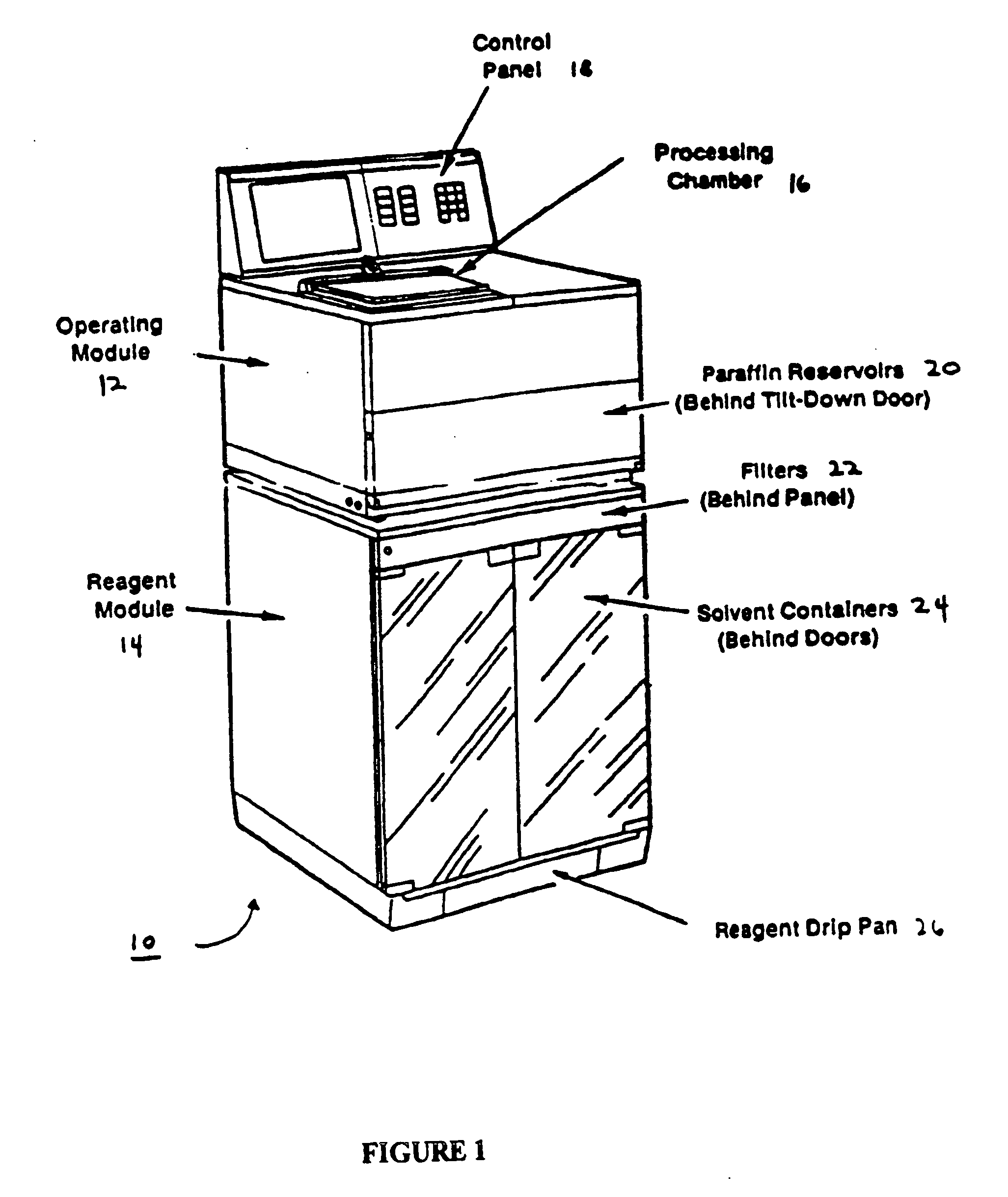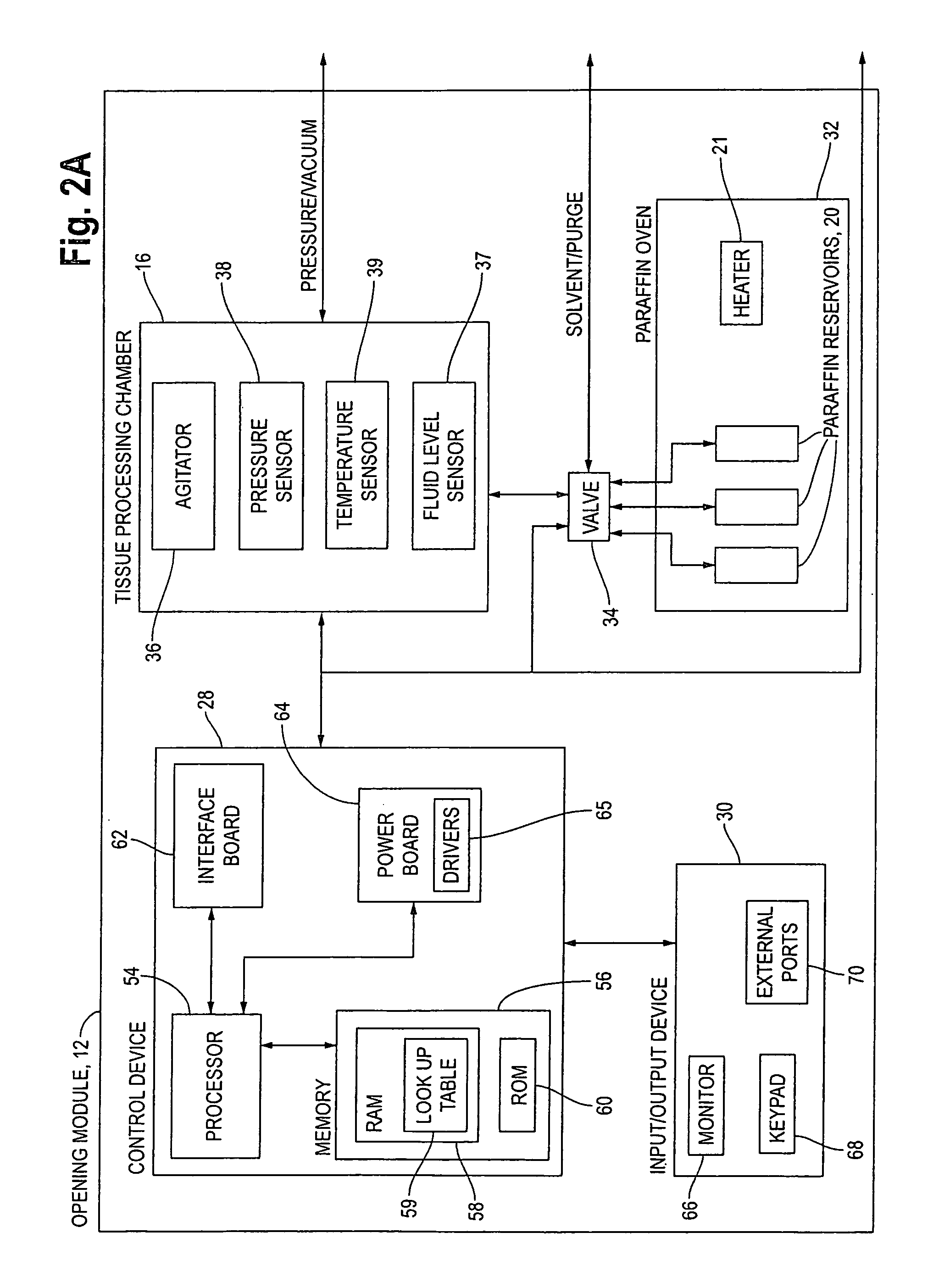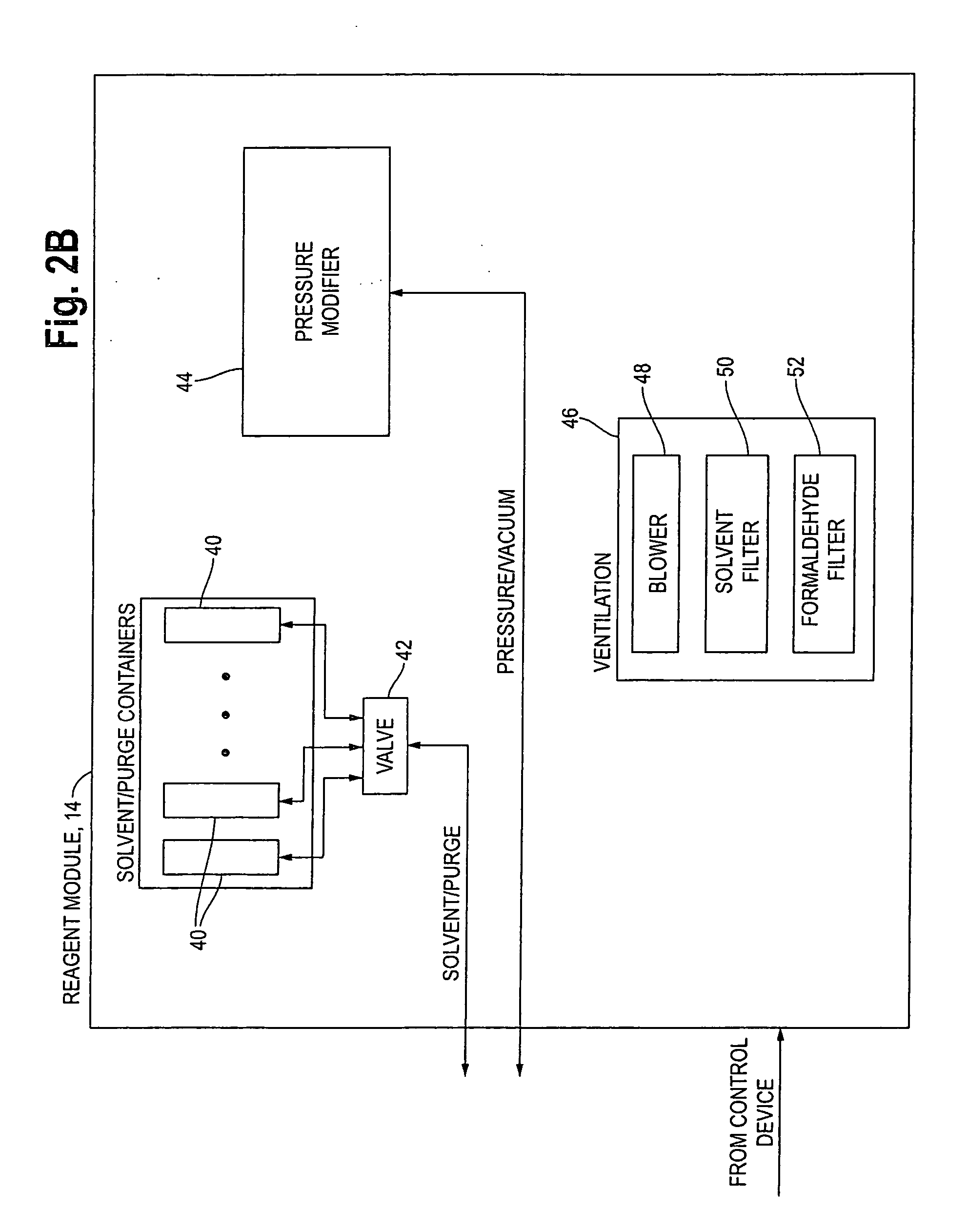Method and apparatus for automated reprocessing of tissue samples
a tissue sample and automated processing technology, applied in the field of cytology and histology, can solve the problems of infiltrated specimens, specimens may be processed incorrectly, and process is very time-consuming
- Summary
- Abstract
- Description
- Claims
- Application Information
AI Technical Summary
Problems solved by technology
Method used
Image
Examples
Embodiment Construction
[0021] The processing and reprocessing of tissue is accomplished by sequentially putting the specimen (such as any organelle, cell, cell suspension, tissue section, or tissue specimen) to be processed or reprocessed in contact with, or immersed in, a series of reagents under controlled conditions. The reagents may be divided into three types: paraffin, solvents and aqueous solvents. The conditions that can be controlled while the tissue is in contact with a reagent can be any combination of heat, pressure, vacuum and agitation.
[0022] Referring to FIG. 1, there is shown one example of a tissue processing and reprocessing system 10. The tissue processing and reprocessing system may consist of two major components: an Operating Module 12 and a Reagent Module 14. The Operating Module and Reagent Module can be placed side-by-side on a benchtop or stacked for a floor mounted configuration, as shown in FIG. 1. The specimen is placed in a processing chamber 16, and reagents are sequentiall...
PUM
| Property | Measurement | Unit |
|---|---|---|
| time | aaaaa | aaaaa |
| aqueous | aaaaa | aaaaa |
| periods of time | aaaaa | aaaaa |
Abstract
Description
Claims
Application Information
 Login to View More
Login to View More - R&D
- Intellectual Property
- Life Sciences
- Materials
- Tech Scout
- Unparalleled Data Quality
- Higher Quality Content
- 60% Fewer Hallucinations
Browse by: Latest US Patents, China's latest patents, Technical Efficacy Thesaurus, Application Domain, Technology Topic, Popular Technical Reports.
© 2025 PatSnap. All rights reserved.Legal|Privacy policy|Modern Slavery Act Transparency Statement|Sitemap|About US| Contact US: help@patsnap.com



